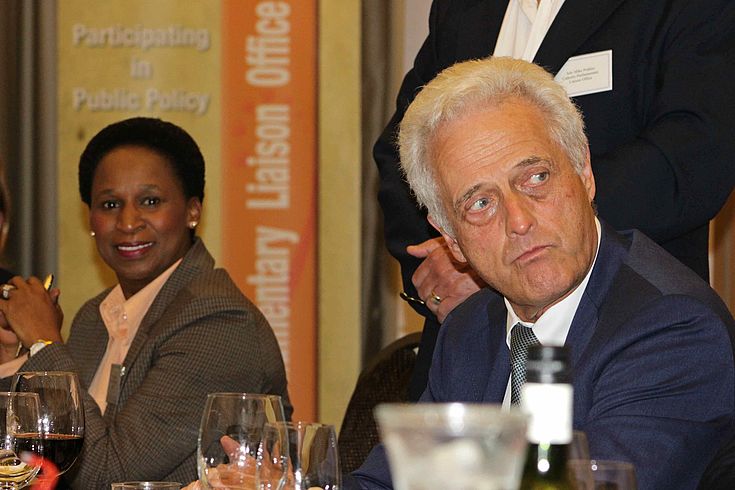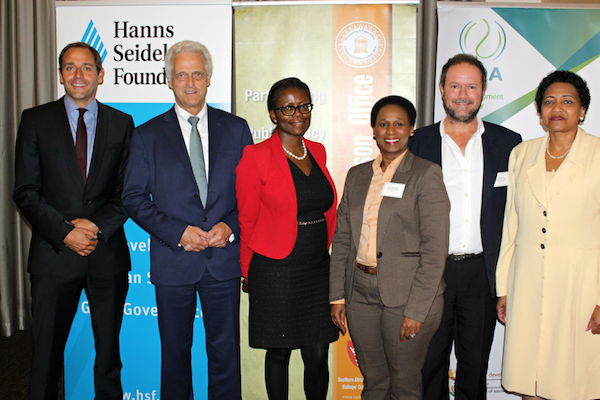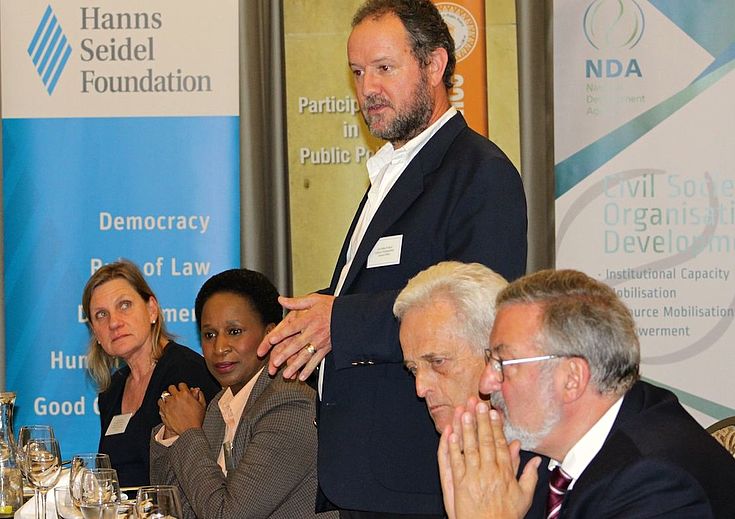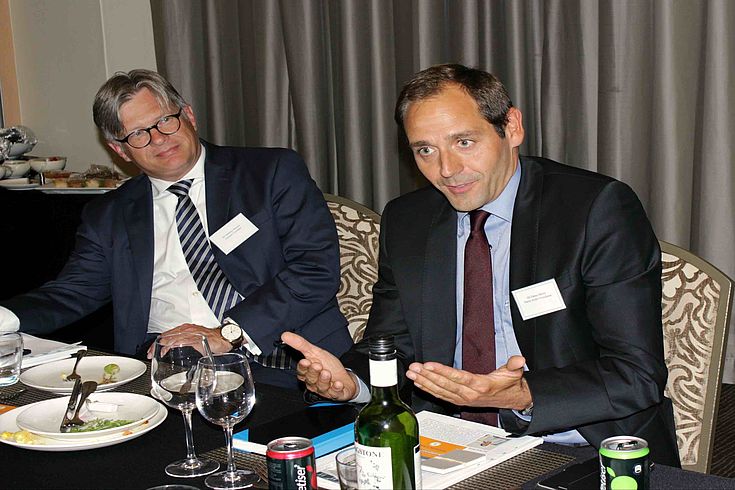South African and German MPs meet with civil society representatives
Dinner discussion on development cooperation hosted with the Catholic Parliamentary Liaison Office in Cape Town

Ms Thamo Mzobe and Dr Peter Ramsauer
CPLO
South Africa as a developmental state
Among the guests were representatives of various local development organisations, as well as members of German diplomatic staff and development experts. The Chief Executive Officer of the National Development Agency, Ms Thamo Mzobe, provided an overview of South Africa’s developmental status and needs. She stressed that SA was not just a welfare state but also a developmental state, and that there was a clear plan for the upliftment of its people. Although the National Development Plan had not yet been implemented uniformly, it was still very much part of government policy and would in fact guide development initiatives up to 2030.

L-R: Mr Hanns Bühler (Regional Representative for Southern Africa, HSF); Dr Peter Ramsauer; Ms Trudi Makhaya (Economic Advisor for President Ramaphosa); Ms Thamo Mzobe; Adv Mike Pothier (Programme Manager, CPLO); and Ms Yvonne Phosa
CPLO
Bilateral cooperation
Dr Ramsauer recalled his first visit to SA, in 1982, and how he had maintained an interest in the country since then. Overseas development, he said, was a priority for Germany, and numerous German organisations were active in SA and elsewhere in Africa in this regard. Equally importantly, German corporations such as BMW, Siemens, Volkswagen, Mercedes and many others, contributed to development and job creation by their presence in SA. One of the areas of mutual interest is a system of vocational training as it has been established in Germany over many decades. It could be seen as public private partnership which opens up doors for young people, and it contributes to develop skills in areas needed by the job market.

CPLO Programme Manager Mike Pothier speaking to the guests
CPLO
Challenges South Africa is facing
Ms Phosa spoke about the various competing priorities facing the country, from unemployment and income inequality, to the need for improved education standards and skills transfers. She noted the constraints under which Treasury was operating, with weak economic growth and growing demand for public spending, for example on free higher education. More than 55 % of the South African population are regarded as poor, the official unemployment rate is over 27 %, with young people being particularly affected, and the country has the highest inequality in the world.

German Consul General in Cape Town, Matthias Hansen, with Hanns Bühler
CPLO
Need for social cohesion
In the discussion following these inputs, much emphasis was placed on the need to improve economic growth, without which it would be impossible to significantly reduce unemployment rates. In this regard, the respective roles of business and labour were mentioned, and the German experience — where co-operation between these two sectors was promoted — was described. The point was also made, however, that economic growth by itself was not enough. True national development also required better social cohesion, and a recognition that SA’s divided history was still a factor holding the country back.
